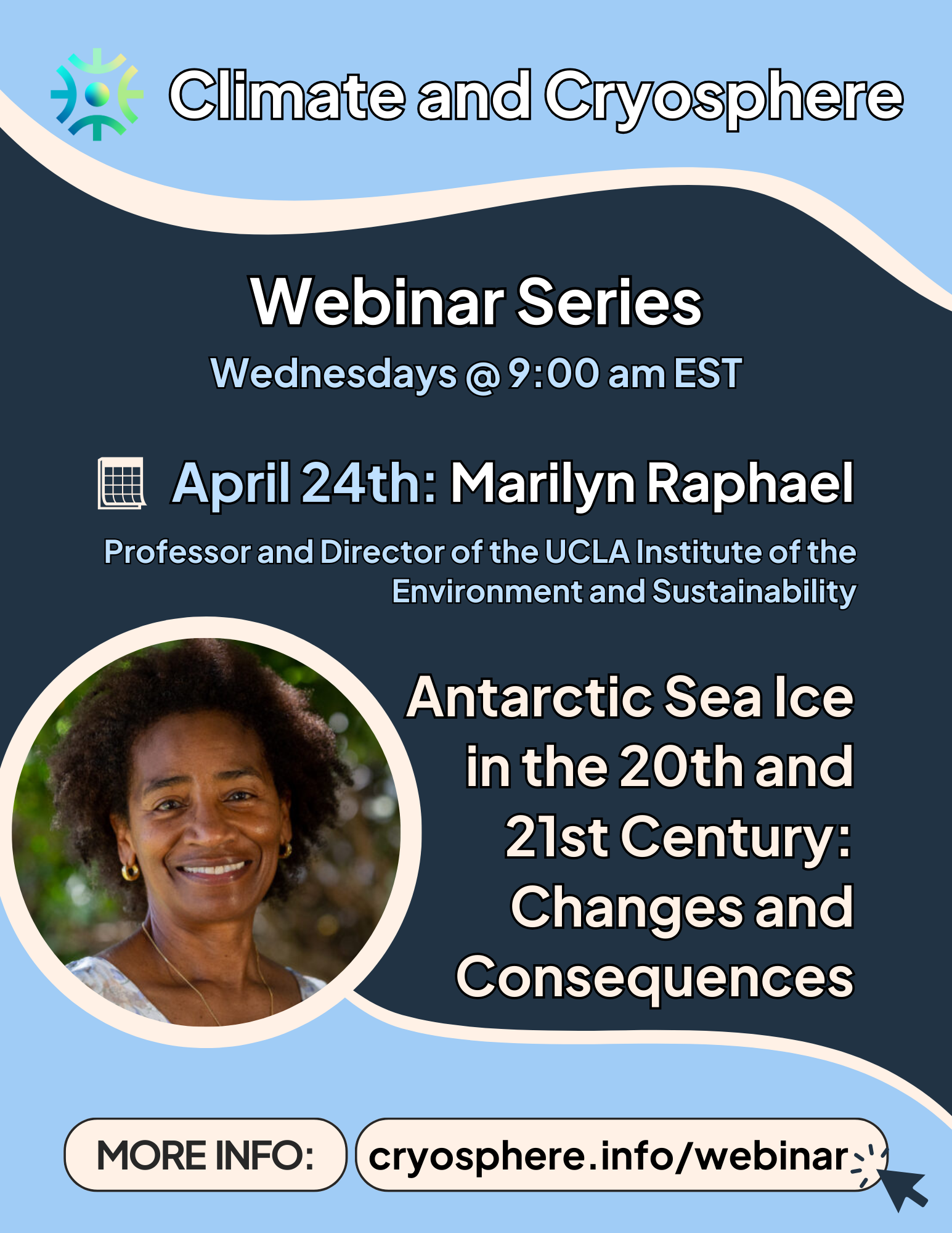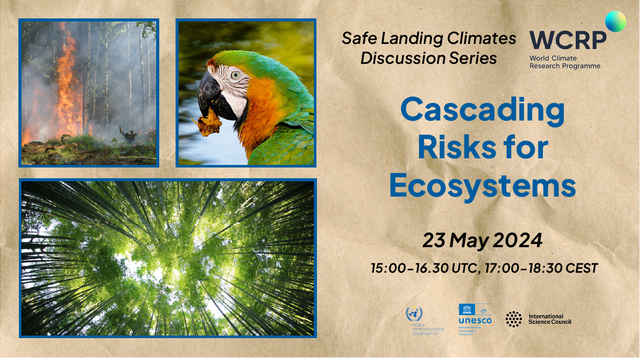
Join us in our next webinar on Cascading Risks for Ecosystems on 23 May 2024, 15:00 UTC.
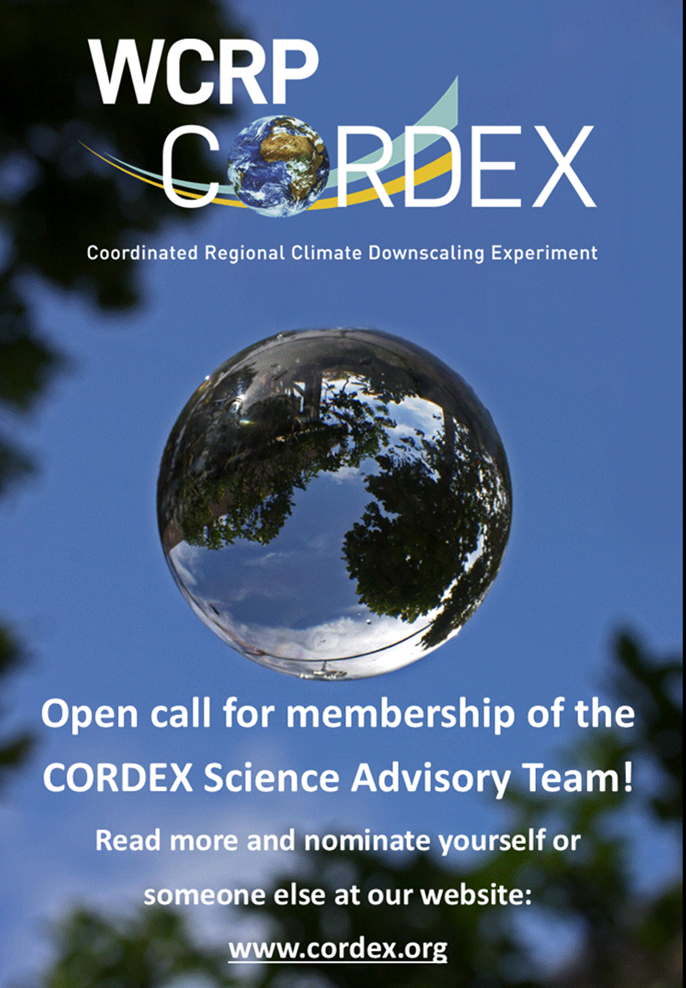
Do you want to engage in and contribute to WCRP Coordinated Regional Downscaling Experiment (CORDEX) development as a member of the CORDEX Science Advisory Team (SAT)? The call for nominations is open until 30 June 2024 and self-nominations are welcomed.
Information about the call and link to the nomination form can be found here.
Don't miss the next CliC Webinar on Wednesday, April 24, 2024, at 9:00 (US East Coast time). Marilyn Raphael, Professor and Director of the UCLA Institute of the Environment and Sustainability, will speak about “Antarctic Sea Ice in the 20th and 21st Century: Change and Consequences.” More details of this and the full webinar series can be found on the CliC website.
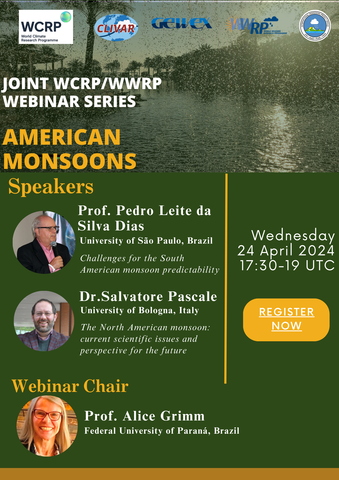
The fourth webinar in this series will focus on American Monsoons, and will be chaired by Prof. Alice Grimm, Federal University of Paraná (UFPR), Brazil.
Speakers:
- Prof. Pedro Leite da Silva Dias (University of São Paulo, Brazil): “Challenges for the South American monsoon predictability"
- Dr. Salvatore Pascale (University of Bologna, Italy): “The North American monsoon: current scientific issues and perspective for the future”
Date and time: 24 April 2024, Wednesday, 17:30-19:00 UTC.
For more information about the speakers and to join the webinar, click here.
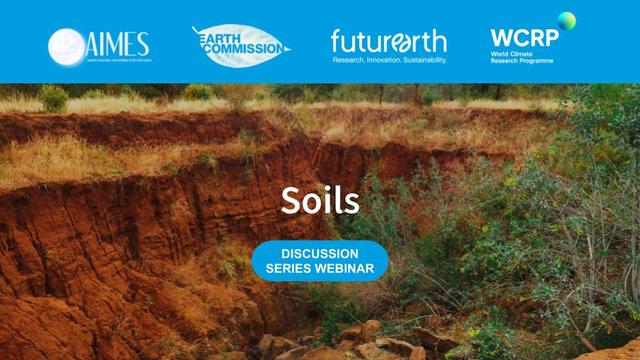
Join experts Amaury Frankl (Ghent University), Nikolaos Nikolaidis (Technical University of Crete), and Amandine Erktan (IRD, UMR Eco&Sols, Montpellier) in a discussion on Soils.
Date: 24 April 2024
Time: 10:30 – 12:00 CEST
For more information and registration, please click here.


